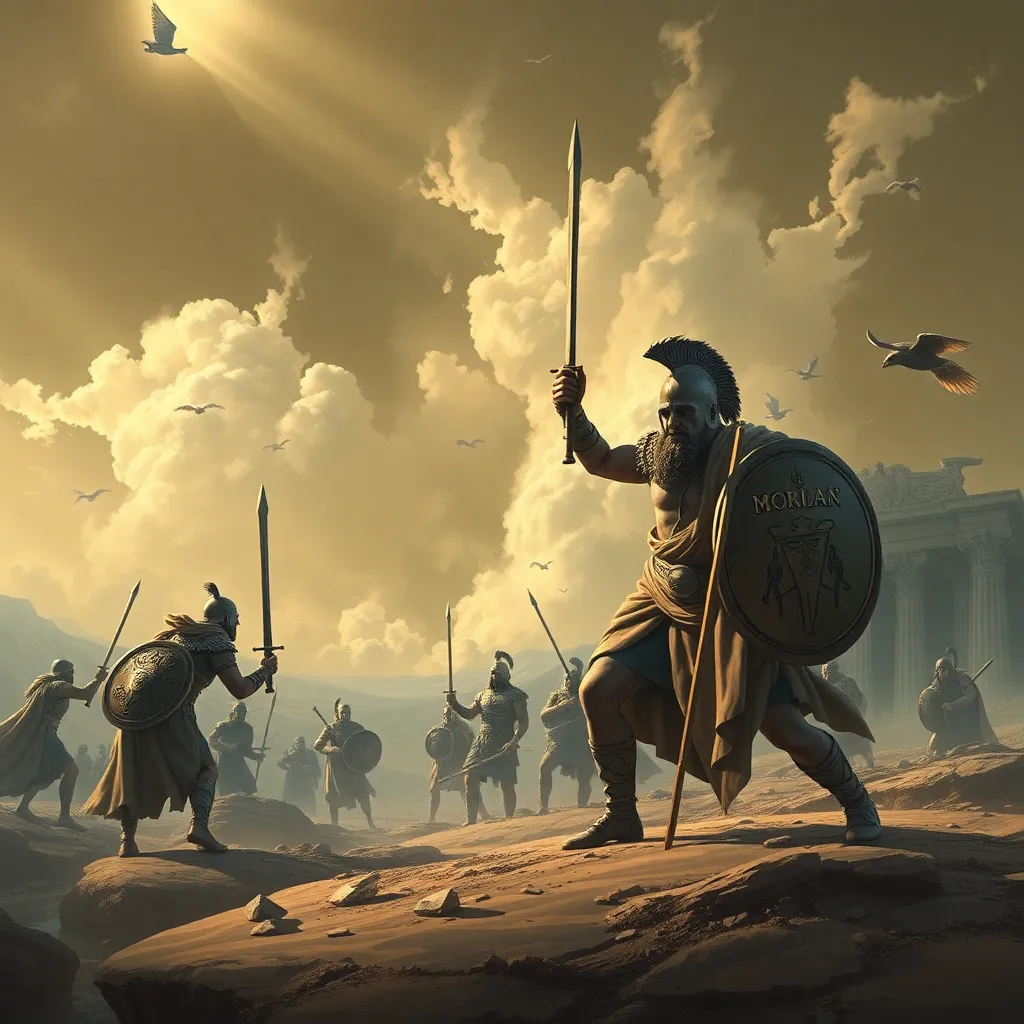The Iliad’s Exploration of the Concept of Honor in Warfare
I. Introduction
“The Iliad,” attributed to the ancient Greek poet Homer, is one of the cornerstones of Western literature. Composed in the 8th century BCE, it narrates the events of the Trojan War, focusing primarily on the hero Achilles and his internal conflicts. The epic poem not only provides a thrilling narrative of war but also delves deeply into the cultural ideals of ancient Greece, especially the concept of honor in the context of warfare.
In ancient Greek society, honor, or “timē,” was a fundamental value that dictated the behavior and social standing of individuals, particularly warriors. Honor was closely tied to one’s reputation and achievements in battle, influencing personal identity and social relationships. This article aims to explore how “The Iliad” articulates the concept of honor within the framework of war, examining its implications for characters and the broader narrative.
II. The Cultural Context of Honor in Ancient Greece
Honor played a pivotal role in Greek society, shaping the actions and motivations of individuals.
- The Role of Honor (Timē): Honor was not merely a personal virtue; it was a public expectation. A warrior’s honor was reflected in his ability to achieve glory in battle.
- Social Status and Personal Identity: Honor influenced one’s social standing. High honor could elevate a warrior’s status, while dishonor could lead to shame and ostracism.
- Honor and Glory (Kleos): The pursuit of honor was intertwined with the quest for “kleos,” or glory. In battle, achieving kleos ensured that a warrior’s name would be remembered through generations.
III. Achilles: The Embodiment of Honor
Achilles, the central figure of “The Iliad,” epitomizes the Greek ideal of honor. His character is defined by a strict code of honor, which dictates his actions throughout the epic.
The conflict between Achilles and Agamemnon serves as a crucial turning point in the narrative, highlighting the fragility of honor. When Agamemnon insults Achilles by seizing his war prize, Briseis, Achilles feels profoundly dishonored. This act triggers a series of events that escalate the conflict and impact the Greek forces.
Achilles’ decision to withdraw from battle illustrates the severe consequences of perceived dishonor. His absence significantly weakens the Greek army, showcasing how personal grievances linked to honor can have far-reaching implications in warfare.
IV. The Role of Honor in Warrior Relationships
Honor shapes not only individual actions but also complex relationships among warriors.
- Friendship and Honor: The bond between Achilles and Patroclus exemplifies how friendship is intertwined with honor. Patroclus’ death spurs Achilles back into battle, motivated by a desire to avenge his fallen friend and restore his own honor.
- Honor and Rivalry: The rivalry between Achilles and Hector is a poignant exploration of honor. Hector, as a defender of Troy, seeks to uphold his honor, while Achilles strives to avenge the dishonor inflicted upon him.
- Alliances and Enmities: Honor influences alliances within the Greek camp. Characters such as Agamemnon and Achilles navigate their relationships based on mutual respect, personal grievances, and the overarching need to maintain their honor.
V. The Concept of Honor in Leadership
Leadership in “The Iliad” is closely examined through the character of Agamemnon.
Agamemnon’s portrayal as a leader highlights the challenges of maintaining honor while wielding power. His decisions often reflect a struggle between personal ambition and the expectations of honorable leadership.
The contrast between Agamemnon’s selfish ambition and the honorable leadership embodied by figures like Achilles reveals the complexities of command in wartime. Dishonor, as demonstrated by Agamemnon’s actions, can undermine military strategy and morale, influencing the outcome of battles.
VI. The Consequences of Honor in Warfare
The pursuit of honor often leads to a cycle of vengeance among the characters in “The Iliad.”
- Cycle of Vengeance: The need to restore honor can lead to violent reprisals, as seen in Achilles’ quest for revenge against Hector.
- Tragic Outcomes: The tragic fates of characters like Achilles and Hector illustrate the perils of pursuing honor at all costs. Their deaths serve as a somber reminder of the high stakes tied to honor in warfare.
- Moral Lessons: Through the fates of key characters, “The Iliad” imparts moral lessons about the consequences of unchecked honor and the importance of moderation.
VII. Honor beyond the Battlefield
Honor extends beyond the battlefield, influencing family and community dynamics during wartime.
- The Role of Women: Characters like Helen and Andromache embody the complexities of honor in a patriarchal society, where women’s honor is often linked to the actions of their husbands or warriors.
- Implications for Family and Community: Honor affects familial relationships and community ties, as seen in the grief and loss experienced by those left behind in the wake of war.
- Narrative Reflection: The exploration of honor in “The Iliad” influences the narrative beyond combat, shaping the emotional and ethical landscape of the story.
VIII. Conclusion
In summary, “The Iliad” provides a profound exploration of the concept of honor in warfare. Through the characters’ experiences, Homer illustrates the intricate relationship between honor, personal identity, and the consequences of conflict. The themes presented in the epic continue to resonate, offering insights into the complexities of honor in both ancient and contemporary societies.
As modern interpretations of warfare evolve, the lessons learned from “The Iliad” regarding honor, vengeance, and the human condition remain relevant, prompting reflections on the enduring significance of these themes in understanding our world today.




